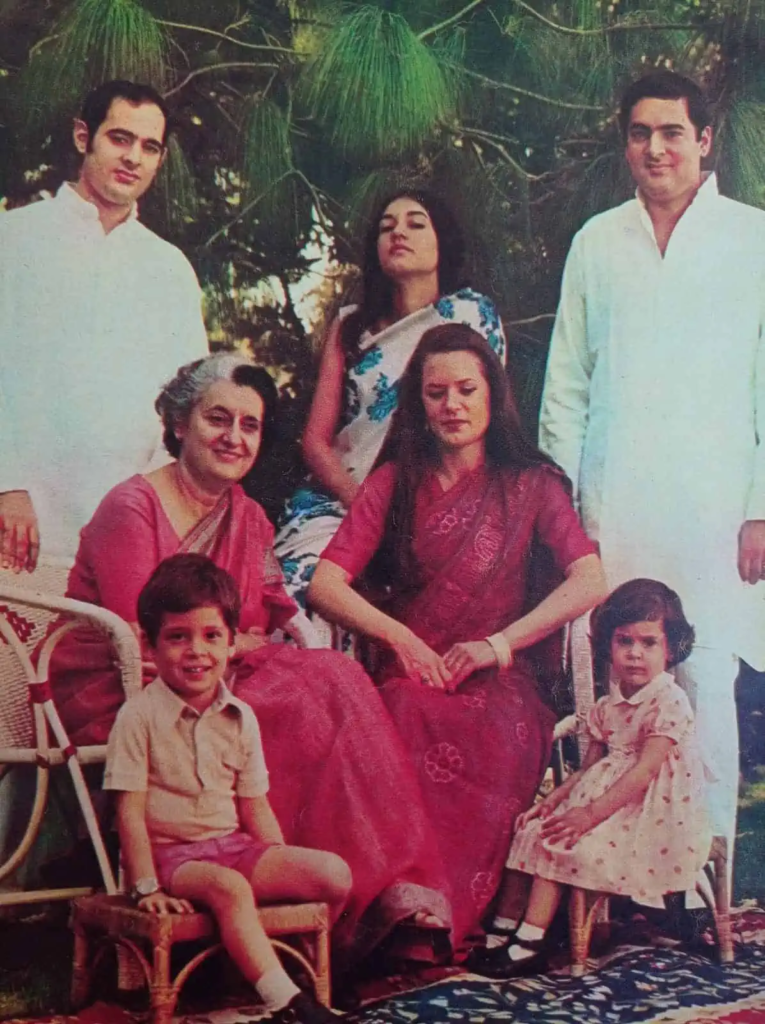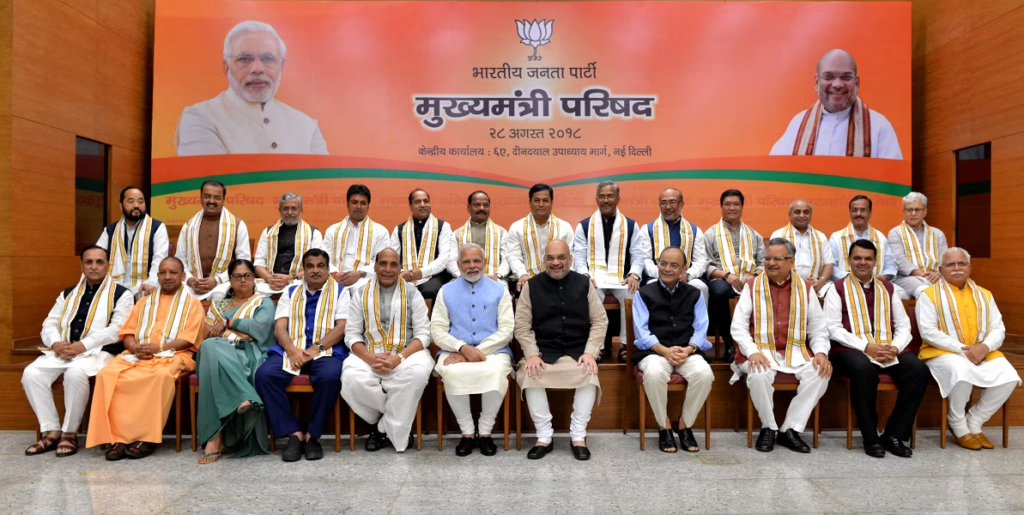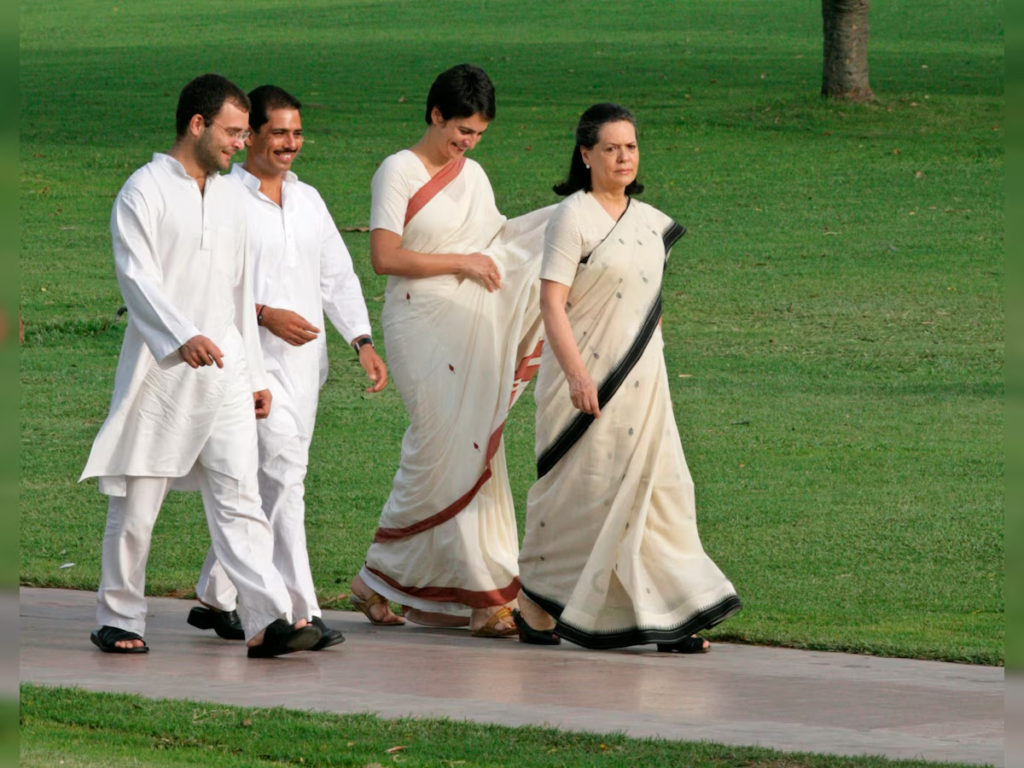India’s political future stands at a crossroads. While the Bharatiya Janata Party (BJP) continues to thrive by bringing leaders from diverse backgrounds into positions of power, the Congress, with its dynastic leadership, faces an uphill battle to reclaim its former glory. India’s political landscape has long been dominated by two major players—the Indian National Congress, led by the Gandhi family for decades, and the BJP, which has emerged as a formidable force with leaders from diverse backgrounds. Priyanka Gandhi is positioned as the next leader from the Gandhi family, reigniting discussions about dynastic politics in a country with 140 crore people, where many believe that strong opposition is lacking.
For decades, the Gandhi family has played a pivotal role in Indian politics. From Jawaharlal Nehru, India’s first Prime Minister, to Indira Gandhi and Rajiv Gandhi, the family’s impact on the country’s political landscape has been lasting. Following a series of leadership transitions and changing political strategies, Priyanka Gandhi Vadra is emerging as a key figure, ready to assume leadership again. As she steps onto the national stage, her rise rekindles the conversation on the dynasty’s enduring role in Indian politics.
The return of Priyanka Gandhi to active politics from the Congress party marks another chapter in the Gandhi family’s political saga. Her charisma, sharp oratory, and connections with grassroots voters have often drawn comparisons to her grandmother, the late Indira Gandhi. Over the years, there have been numerous calls within the Congress to elevate Priyanka to the forefront of national politics now, with the Congress Party grappling to find its footing, she appears ready to answer those calls.
The Gandhi Dynasty’s Long Rule
The Gandhi family has ruled India for several terms, holding the Prime Minister’s position for much of India’s post-independence history. Jawaharlal Nehru’s tenure as the first Prime Minister established the Congress Party’s dominance, a legacy, carried forward by his daughter Indira Gandhi, who served two terms. Indira’s son, Rajiv Gandhi, also took office, continuing the family’s influence in Indian politics. Though the Congress Party has seen periods of decline, with Rahul Gandhi leading the party through challenging times, Priyanka Gandhi, is now seen as the family’s next hope to reinvigorate its legacy.

While the family’s political contributions are often celebrated, their presence has also led to debates about dynastic politics with critics arguing that it creates a monopolistic power structure within the party, limiting opportunities for grassroots leaders to rise to the top.
BJP: A Contrasting Leadership Model
On the other side of the political spectrum, the Bharatiya Janata Party (BJP) presents a contrasting leadership model. The party has cultivated a broad base of leaders from diverse backgrounds, moving away from dynastic politics. Under the leadership of Prime Minister Narendra Modi, who hails from a humble background, and the guidance of BJP stalwarts like Amit Shah, the party has grown into a formidable political force with a robust organizational structure.

The BJP has brought forward leaders from different regions, castes, and professional backgrounds in contrast to the Gandhi-centric Congress. The rise of leaders like Yogi Adityanath, a monk-turned-chief minister, and Nitin Gadkari, a leader with roots in infrastructure and transport, exemplifies this diversity. A former TV actress, Smriti Irani is another example of the BJP’s diverse leadership. From her role in the entertainment industry to holding significant portfolios in the government, her journey underscores the broad spectrum of opportunities within the party. India’s current Finance Minister, Nirmala Sitharaman, comes from a non-political, academic family and has risen through the ranks of the BJP to hold one of the most crucial positions in the government. Her leadership reflects the party’s commitment to bringing in technocrats and professionals.

A Vacuum in the Opposition
While Priyanka Gandhi’s entry into active politics signals the revival of the Congress Party’s hope to reclaim its political dominance, the larger picture of India’s opposition remains bleak. Despite the Congress Party’s historical significance, it has struggled to establish itself as a strong contender against the BJP in recent years. In a country of 140 crore people, the lack of a cohesive and united opposition has become a significant concern for Indian democracy.
The lack of political unity among opposition parties has often resulted in fragmented campaigns and weakened attempts to challenge the ruling BJP. While regional parties have shown strength in certain states, a pan-India opposition strong enough to stand against the BJP’s political machinery is still absent.
As India’s democracy matures, the need for a strong, vibrant opposition is increasingly being felt. A healthy democracy requires a counterbalance, a space where different ideologies, policies, and visions for the nation can compete. Whether Priyanka Gandhi’s leadership will herald a new era for Congress and bolster the opposition remains to be seen.
As Priyanka Gandhi steps forward to reinvigorate the Congress Party, she faces a political landscape dominated by the BJP and its diverse leadership. The Gandhi family’s legacy has shaped much of India’s political history, but the challenges before Priyanka are substantial. In the absence of a strong opposition to counter the BJP, India’s political future remains uncertain, with the question of whether Priyanka can bring the Congress Party back to power looming large over the country’s political discourse.

In this new chapter of Indian politics, the contrast between the dynastic legacy of the Gandhis and the varied leadership of the BJP provides essential insight into the direction of India’s democracy. The political vacuum in the opposition remains an issue, and it is up to leaders like Priyanka Gandhi to rise to the occasion if they hope to make a significant impact.

As Priyanka Gandhi emerges as the next potential leader from the Gandhi family, the question remains—can she revive the Congress and create a formidable opposition in Indian politics? While the BJP continues to dominate, bringing leaders from diverse backgrounds to the forefront, the lack of a strong political counterweight in the country’s democracy is a concern in many ways. India’s future political landscape will depend on whether Congress can reinvent itself or if new political forces will rise to challenge the status quo.
Also Read: Bigg Boss 17 Winner Munawar Faruqui Under Police Protection After Foiled Assassination Attempt